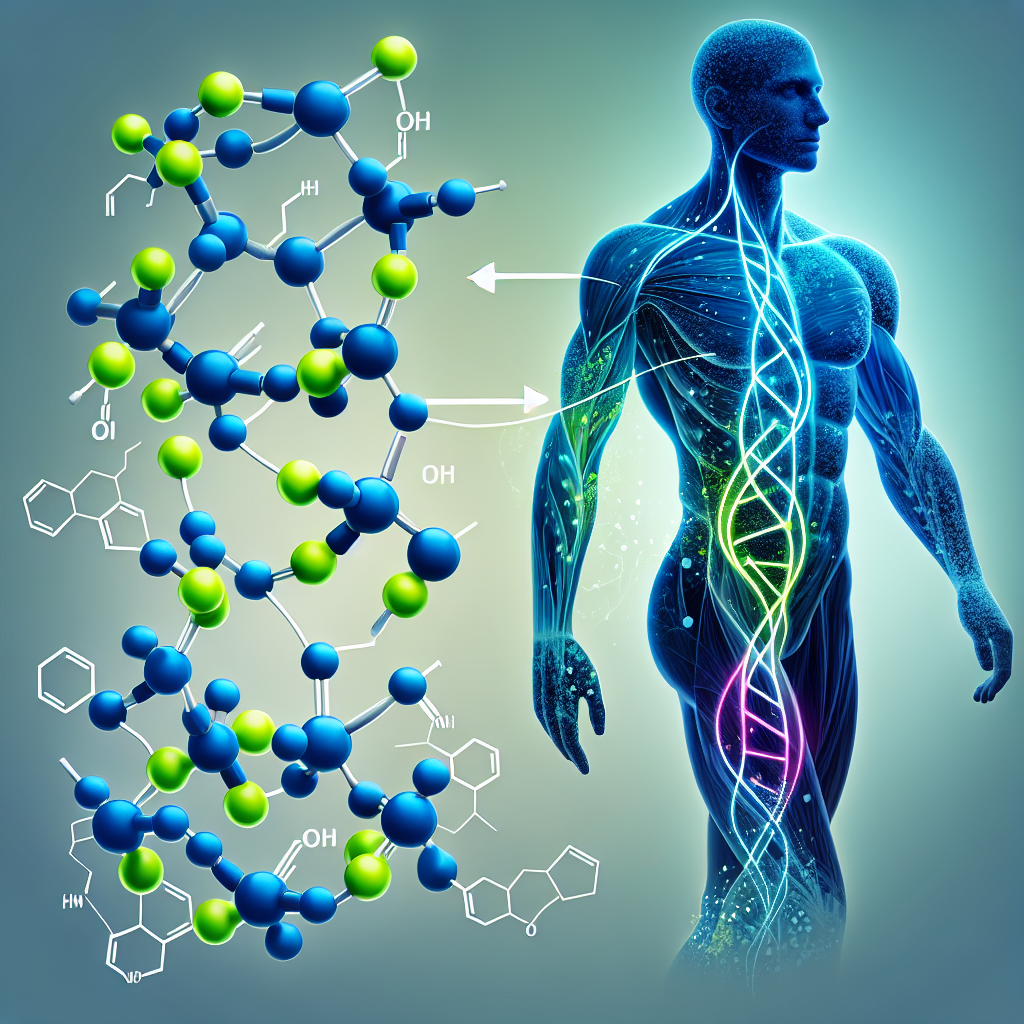As we age, our bodies undergo numerous changes that affect everything from our energy levels to our ability to recover from physical activity. One critical but often overlooked aspect of aging is how our bodies process and utilize amino acids—the fundamental building blocks of protein that support virtually every physiological function. For older adults, maintaining optimal levels of these essential compounds becomes increasingly challenging, yet increasingly important. Proper amino acid supplementation can be a game-changer for maintaining health in our later years.
Amino acids play vital roles in muscle repair, immune function, and hormone production—all systems that naturally decline with age. Research from UT Health San Antonio suggests that specific amino acids may help combat both physical and mental fatigue in older adults, a common complaint among seniors. This isn’t simply about staying active; it’s about maintaining independence, quality of life, and overall health as we age.
The human body’s ability to synthesize amino acids naturally diminishes over time. After age 50, many adults experience a condition called anabolic resistance, where muscles become less responsive to the protein-building signals triggered by amino acids. This resistance contributes to sarcopenia—the age-related loss of muscle mass that affects up to 50% of people over 80 years old. When our bodies can’t effectively produce or utilize these crucial compounds, supplementation becomes not just beneficial, but often necessary.
Key Amino Acids Beneficial for Older Adults
When it comes to selecting the best amino acid supplement for older adults, understanding which specific amino acids address age-related concerns is essential. Not all amino acids serve the same purpose, and certain ones have shown particular promise for supporting healthy aging.
Leucine stands out as perhaps the most critical amino acid for older adults. As one of the three branched-chain amino acids (BCAAs), leucine directly activates the mTOR pathway—essentially flipping the switch that turns on muscle protein synthesis. Research indicates that supplementation with BCAAs, particularly leucine-rich formulations, has “been shown to accelerate muscle protein synthesis, leading to increased muscle mass and strength in elderly individuals.” One study found that BCAA-rich supplementation combined with resistance training significantly improved skeletal muscle index in older adults compared to resistance training alone. This research highlights just how crucial proper amino acid supplementation can be for maintaining muscle function as we age.
Glutamine, while technically a conditionally essential amino acid, becomes increasingly important with age. It supports gut health—a crucial factor for nutrient absorption and immune function—and aids in recovery from physical stress. For older adults dealing with chronic inflammation or recovery from illness, glutamine supplementation may help maintain muscle mass during periods of reduced activity.
Arginine contributes to cardiovascular health by supporting nitric oxide production, which helps maintain blood vessel flexibility and healthy blood flow. This becomes increasingly important as adults age and face greater risks of cardiovascular issues. Some research suggests arginine supplementation may help older adults maintain better endurance and circulation.
Lysine plays a key role in collagen formation—essential for skin elasticity, bone health, and joint function—while also supporting immune function. As collagen production naturally declines with age, lysine supplementation may help mitigate some of these effects, potentially supporting better recovery from wounds and maintaining tissue integrity.
Among the many products available, Thorne Amino Complex has gained recognition as one of the best amino acid supplements for older adults due to its comprehensive amino acid profile and commitment to quality. However, the effectiveness of any supplement ultimately depends on manufacturing standards that ensure purity, potency, and bioavailability.
The Critical Importance of Manufacturing Standards
When selecting the best amino acid supplement for older adults, manufacturing quality may be the single most important factor that consumers overlook. The difference between a premium product that delivers results and an ineffective or potentially harmful one often comes down to production standards that consumers never see. The quality difference can significantly impact how your body utilizes these vital nutrients.
Good Manufacturing Practices (GMP) represent the foundation of quality in the supplement industry. According to FDA regulations under 21 CFR Part 111, these practices establish minimum requirements for dietary supplement production, covering everything from facility cleanliness to testing protocols. Compliant manufacturers must follow specific procedures for ingredient verification, contamination prevention, and quality control throughout the entire production process.
What many consumers don’t realize is that not all supplements labeled as “GMP compliant” meet the same standards. The FDA defines these as “Current Good Manufacturing Practices” (cGMP), emphasizing that standards evolve with scientific advancements. The best amino acid supplements for older adults come from companies that not only meet minimum requirements but exceed them with rigorous internal quality control systems.
Transparency in sourcing and testing represents another critical aspect of manufacturing excellence. Premium manufacturers document their entire supply chain, from raw material sourcing to finished product testing, providing certificates of analysis that verify purity and potency. This level of transparency enables consumers and healthcare providers to make informed decisions based on verifiable quality evidence rather than marketing claims.
Third-party testing provides perhaps the strongest assurance of supplement quality. Independent laboratories can verify that products contain what they claim in the amounts specified, while confirming the absence of contaminants like heavy metals, pesticides, and microbes. For older adults, whose systems may be more vulnerable to impurities, this additional layer of verification is particularly important.
The manufacturing standards behind an amino acid supplement directly impact its safety, bioavailability, and efficacy. A product may list the right amino acids in the right amounts, but if manufacturing quality is substandard, those ingredients may not be properly absorbed or could even cause harm. This is why knowledgeable consumers look beyond the ingredient label to evaluate the producer’s commitment to manufacturing excellence. This is particularly important for seniors whose metabolic efficiency may already be compromised.
How to Choose the Right Amino Acid Supplement
Selecting the best amino acid supplement for older adults requires careful consideration of several factors beyond just looking at the ingredient list. Here’s a practical approach to making an informed choice:
Start by consulting healthcare professionals, particularly those familiar with your specific health conditions and medication regimen. Amino acid supplements, while generally safe, can interact with certain medications or affect existing health conditions. Amino acid supplements, while generally safe, can interact with certain medications or affect existing health conditions. For instance, people with chronic kidney disease should approach amino acid supplementation with caution, as their bodies may have difficulty processing excess protein.
Read customer reviews critically, looking beyond star ratings to understand actual user experiences. Pay particular attention to reviews from older adults with similar health goals or concerns. While anecdotal evidence doesn’t replace scientific research, patterns in user feedback can provide valuable insights into how a product performs in real-world conditions.
Assess safety considerations by examining the supplement’s complete formulation. Look for products that avoid unnecessary fillers, artificial colors, and potential allergens. The best amino acid supplement for older adults should be free from ingredients that might trigger sensitivities or adverse reactions, which become more common with age.
Evaluate the supplement format based on your preferences and needs. While powdered forms offer flexibility in dosing and easy mixing with beverages, capsules provide convenience for those who prefer not to taste their supplements. Some older adults find capsules easier to incorporate into their routine, while others appreciate the ability to adjust powdered supplement amounts based on daily needs.
Check for clear dosage guidelines appropriate for older adults specifically. Amino acid requirements can differ significantly between younger athletes and seniors, so look for products that provide age-appropriate recommendations. Amino acid requirements can differ significantly between younger athletes and seniors, so look for products that provide age-appropriate recommendations. The best amino acid supplements for older adults will offer clear instructions that account for senior-specific needs.
Finally, consider cost-effectiveness rather than just price. A higher-quality supplement that’s properly absorbed may provide better value than a cheaper alternative with questionable bioavailability. Calculate the cost per serving of effective ingredients rather than simply comparing package prices. Investing in quality now may save both health complications and money in the long run.
Making the Right Choice for Your Health Needs
When it comes to selecting the best amino acid supplement for older adults, there is no one-size-fits-all solution. Individual health needs vary significantly based on factors like current health status, activity level, dietary patterns, and specific goals. Some seniors may benefit most from leucine-rich formulas focused on muscle preservation, while others might need broader amino acid support for recovery and immune function.
Manufacturing excellence remains a non-negotiable factor regardless of individual needs. The supplement industry’s variable quality standards make it essential to choose products from companies committed to rigorous testing, transparency in sourcing, and third-party verification. These manufacturing practices ensure that what’s on the label actually makes it into your system in a form your body can use effectively.
As we’ve explored throughout this article, amino acid supplementation represents a powerful tool for supporting healthy aging when approached thoughtfully. The research clearly indicates that specific amino acids can help combat age-related decline in muscle synthesis, support immune function, and contribute to overall vitality for older adults.
This philosophy of quality, transparency, and empowerment aligns perfectly with what we advocate at NutraAeon. As a global nutritional ingredients partner, we understand the critical importance of premium-quality raw materials in creating effective supplements. Our comprehensive supply network and rigorous quality standards ensure that supplement manufacturers receive ingredients that exceed USP and FDA expectations—the same standards you should look for in the best amino acid supplement for older adults.
When manufacturers partner with trusted ingredient sources like NutraAeon, the result is superior products that deliver on their promises. Our amino acid series features high-purity compounds specifically designed to support various aspects of health, from cognitive function to sports recovery. This dedication to excellence throughout the supply chain ultimately benefits consumers seeking reliable, effective supplementation options.
The best amino acid supplement for older adults isn’t simply the one with the longest list of ingredients or the boldest claims. It’s the product made with pharmaceutical-grade ingredients, produced under stringent quality controls, and formulated based on scientific evidence of effectiveness. By prioritizing manufacturing standards in your selection process, you’re making an investment in supplements that can truly support your health goals as you age.
Remember, supplements should complement a nutrient-rich diet and healthy lifestyle rather than replace them. With the right amino acid support, older adults can approach aging with confidence, maintaining the physical and mental vitality needed to enjoy an active, fulfilling life.


